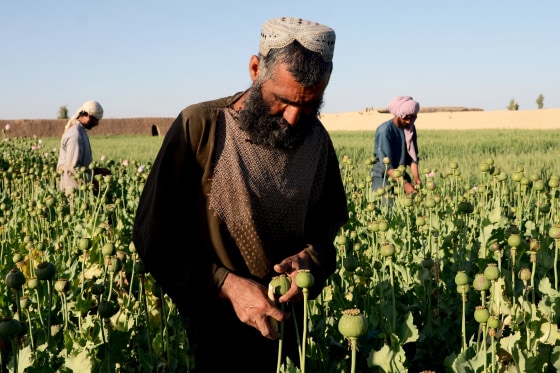The Taliban announced on Sunday a ban on the cultivation of narcotics in Afghanistan, the world’s biggest opium producer.
“All Afghans are informed that from now on, cultivation of poppy has been strictly prohibited across the country,” according to an order from the Taliban’s supreme leader, Haibatullah Akhundzada.
“If anyone violates the decree, the crop will be destroyed immediately and the violator will be treated according to the Sharia law,” the order, announced at a news conference by the Ministry of Interior in Kabul, said.
Download the NBC News app for breaking news and politics
The order said the production, use or transportation of other narcotics was also banned.
Drug control has been one of the international community’s major demands of the Islamist group, which took over the country in August and is seeking formal international recognition in order to wind back sanctions that are severely hampering banking, business and development.
The Taliban banned poppy growing toward the end of their last rule in 2000 as they sought international legitimacy, but faced a popular backlash and later mostly changed their stance, according to experts.
Afghanistan’s opium production — which the United Nations estimated was worth $1.4 billion at its height in 2017 — has increased in recent months, farmers and Taliban members told Reuters.
The country’s dire economic situation has prompted residents of southeastern provinces to grow the illicit crop, which can bring them faster and higher returns than legal crops such as wheat.

